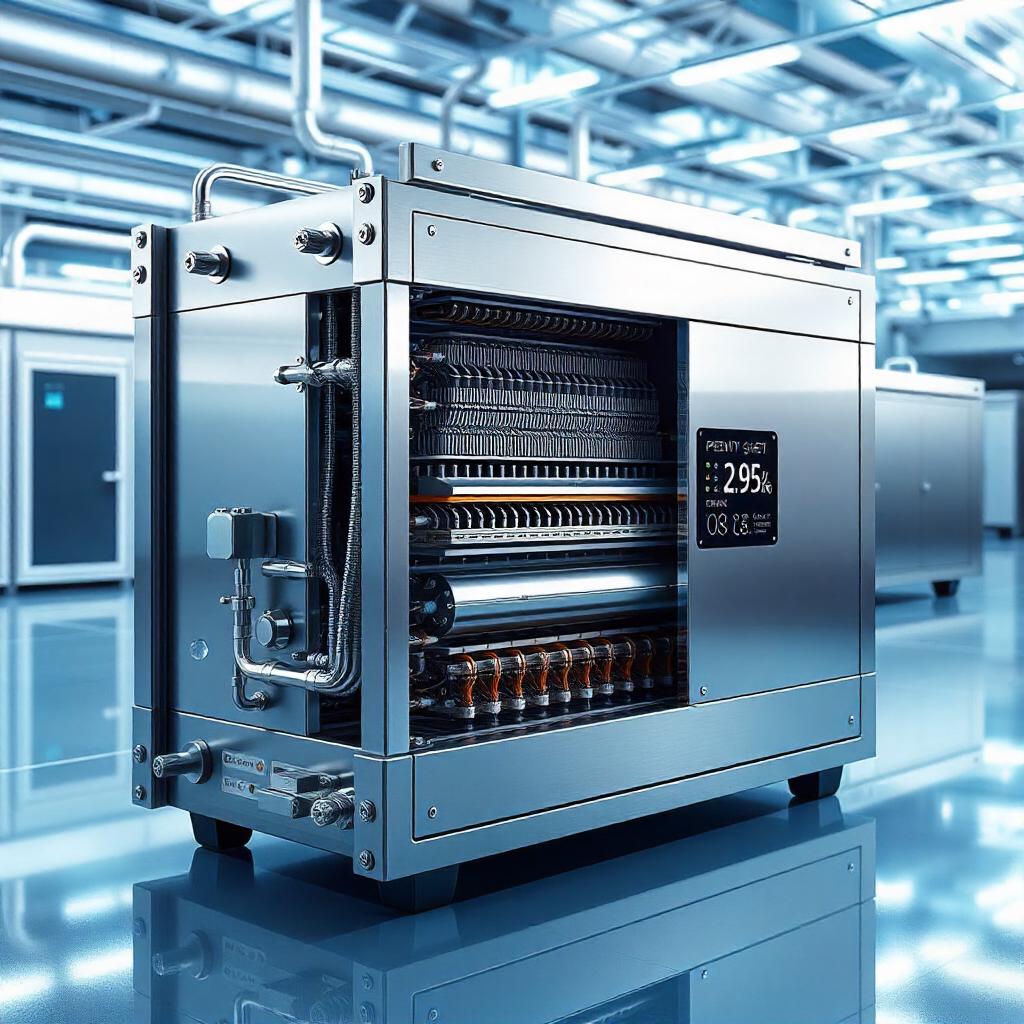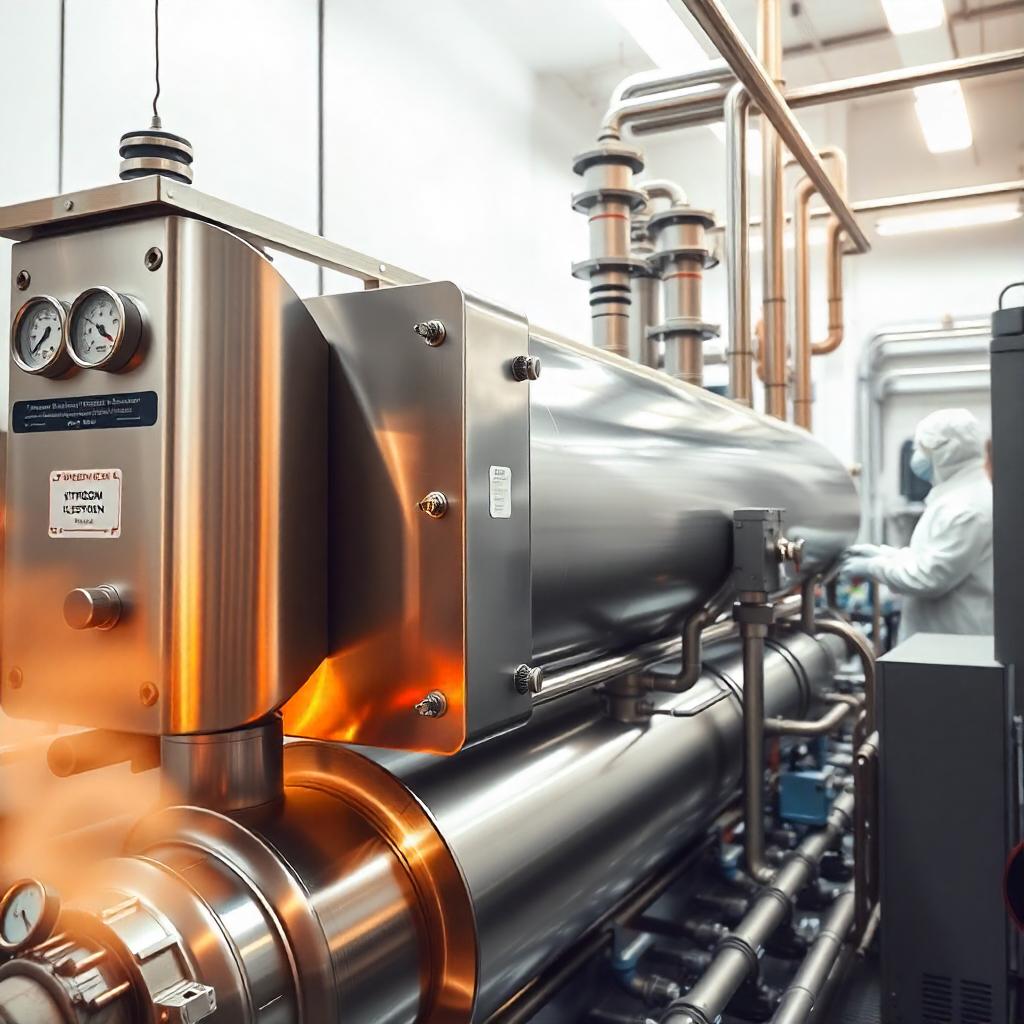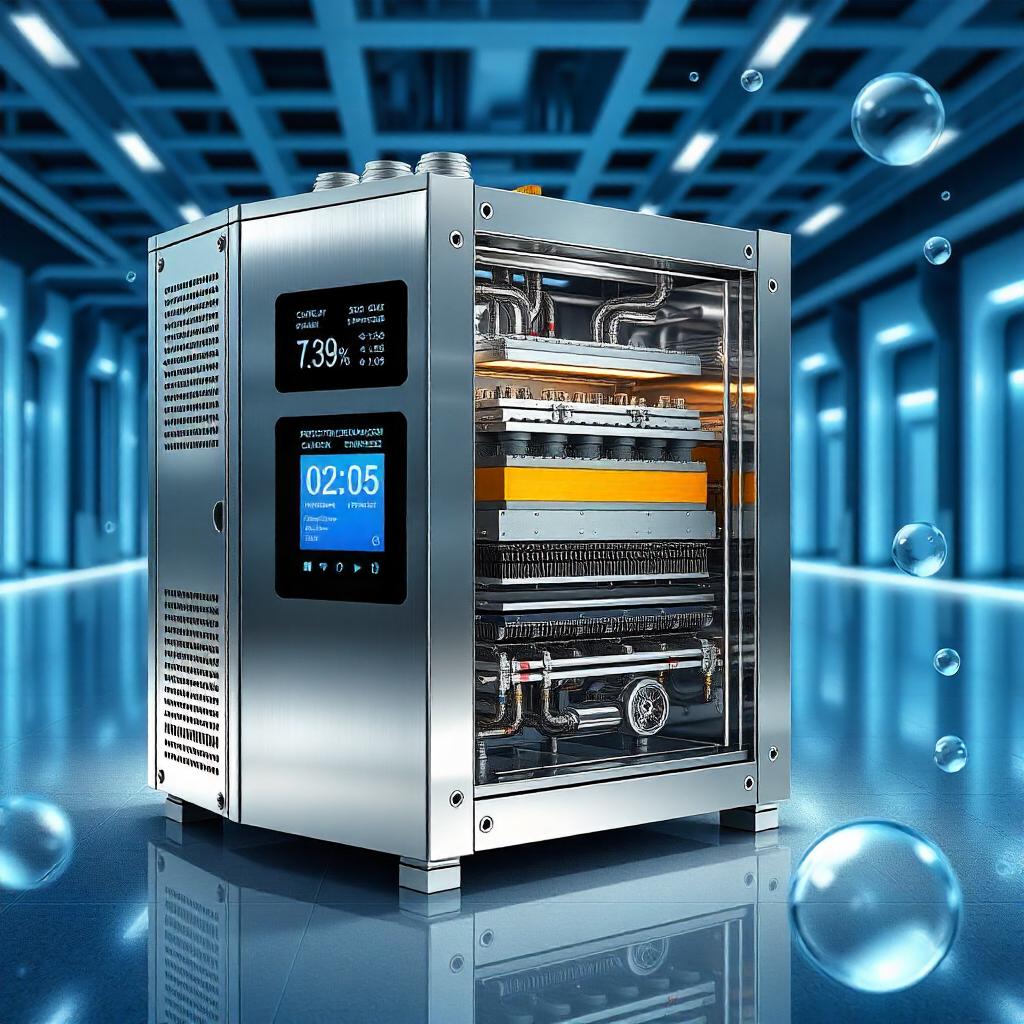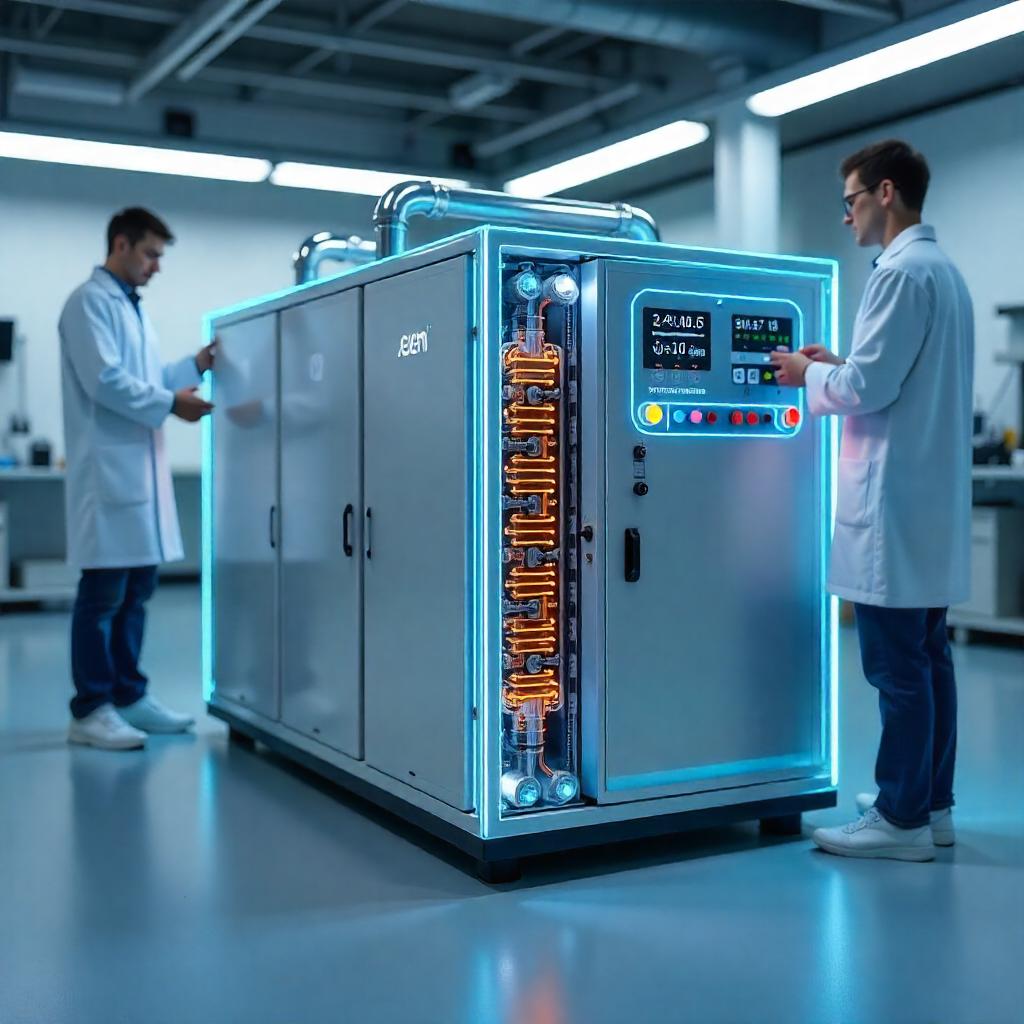Producing Hydrogen from Water
Electrolyzers
What Are Electrolyzers?

How Electrolysis Works
Electrolysis involves passing an electric current through water to separate its hydrogen and oxygen molecules. The process occurs within an electrolyzer, which consists of two electrodes (anode and cathode) submerged in an electrolyte solution.
Step-by-Step Process of Electrolysis:
- Water Input – Pure water (H₂O) is fed into the electrolyzer.
- Electric Current Applied – A direct current (DC) is introduced into the system.
- Molecular Separation:
- At the anode (+), water molecules release electrons and split into oxygen (O₂) gas and protons (H⁺).
- At the cathode (-), the protons gain electrons and form hydrogen (H₂) gas.
- Hydrogen Collection & Storage – The extracted hydrogen is captured, purified, and stored in high-capacity tanks or converted into electricity through fuel cells.
Since this process emits only oxygen as a byproduct, it is a completely emission-free method of producing hydrogen fuel.
Our Electrolyzer Technologies
Green Soluation is continuously innovating in electrolyzer technology, holding over 1 patents across stack, BOP, and auxiliary system designs.
Our dedicated R&D team, consisting of expert scientists and engineers, has been advancing Green Soluation’s alkaline, PEM, and AEM electrolysis technologies since 2012.
Alkaline Electrolysis
Alkaline electrolyzers are one of the oldest and most widely used hydrogen production technologies. They use a liquid electrolyte solution (potassium hydroxide or sodium hydroxide) to facilitate the electrolysis process.
✅ Best for Large-Scale Hydrogen Production
✅ Proven & Cost-Effective Technology
✅ Long Lifespan & High Durability

Proton Exchange Membrane (PEM) Electrolyzers
PEM electrolyzers use a solid polymer membrane as an electrolyte. Unlike alkaline electrolyzers, they operate at higher efficiency and respond rapidly to fluctuations in renewable energy input.
✅ High Efficiency & Fast Response Time
✅ Compact Design & Modular Scalability
✅ Suitable for Intermittent Renewable Energy Sources

Anion Exchange Membrane (AEM) Electrolyzers
AEM electrolyzers are an innovative hybrid between alkaline and PEM technologies. They offer stability, cost-efficiency, and higher resistance to impurities in the water supply.
✅ Emerging Technology with High Potential
✅ Combines Benefits of Alkaline & PEM Electrolyzers
✅ Improved Efficiency & Lower Material Costs
